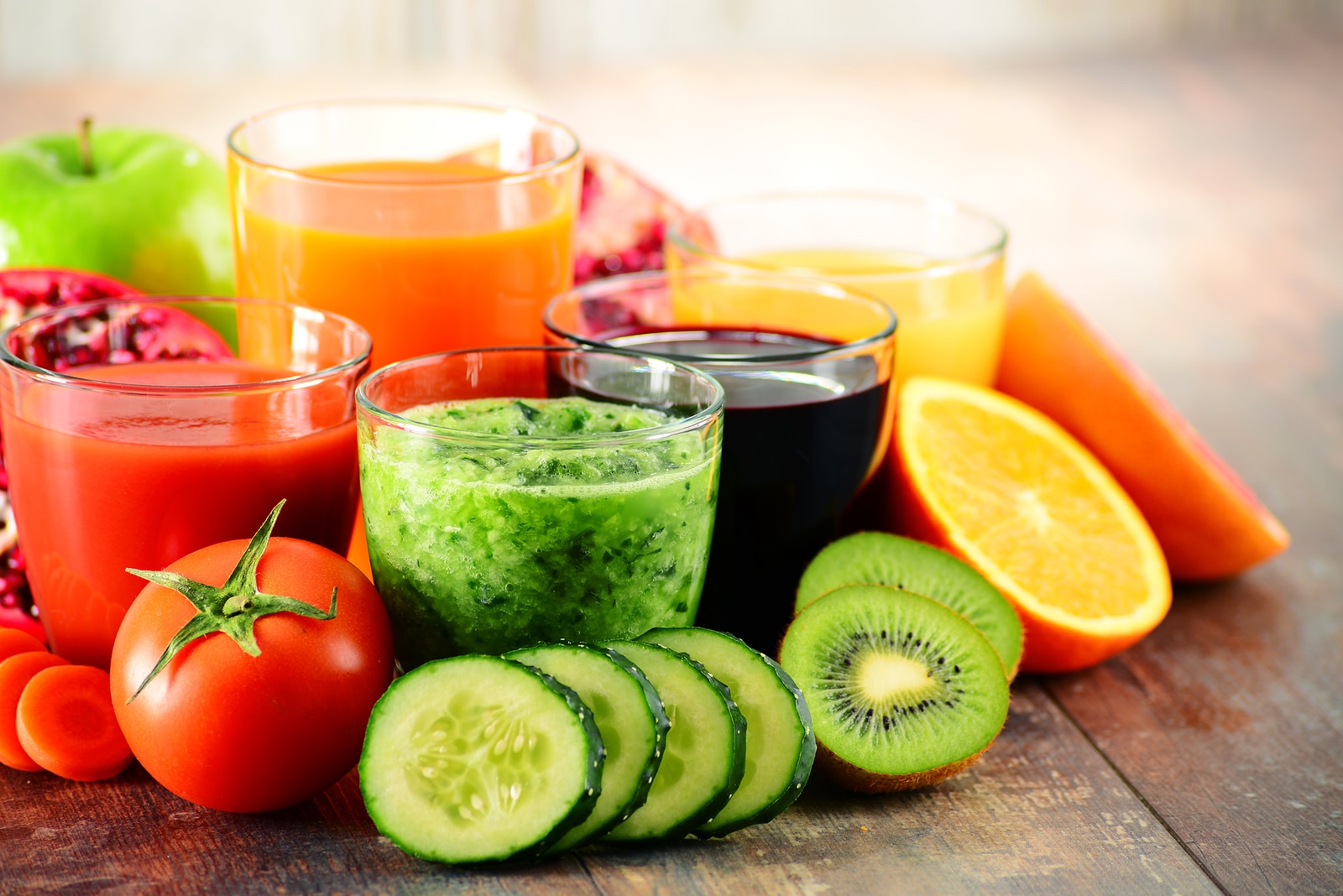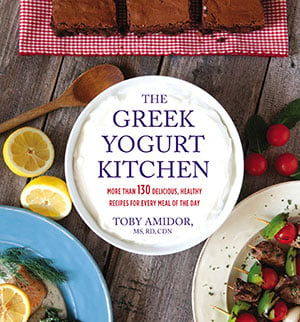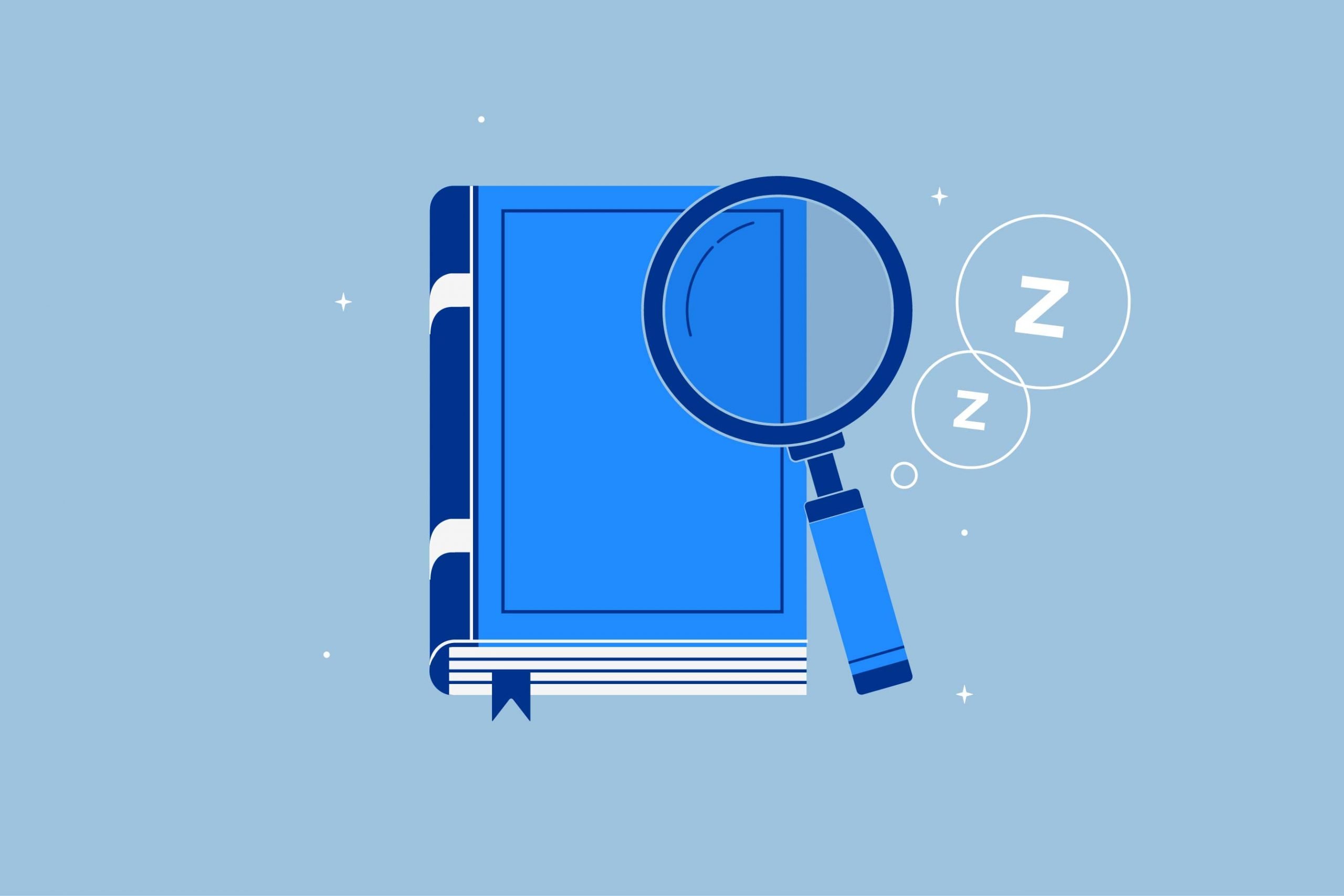Dietician Toby Amidor dishes up tips on integrating healthier eating habits and offers insight on the relationship between food and sleep.
Nutrition is a key pillar of health, and most of us know that our diets have direct connections to things like weight, energy, and overall wellness. However, one area where the impact of food may be a little less obvious is sleep.
Recent research has found plenty of interesting connections between what we eat and how well we sleep, though. For example, large scale studies indicate that eating a well-balanced diet supports healthy rest habits, with high or low intake of certain nutrients showing connections to how long we sleep and common sleep issues.
Studies have even found that certain foods like carbohydrates can support better sleep in the evening and that a lack of nutrients like vitamin D can have significant effects on rest. The connections between diet and sleep appear to work both ways as well, with sleep quality in turn affecting the types of foods we crave and overall calories consumed.
To learn a little more about this interesting relationship, we reached out to Toby Amidor, MS RD, a leading dietician and recipe developer who focuses on wholesome and delicious nutrition.
Toby is an accomplished writer and also offers nutrition and food safety consulting services. She is an established expert in the nutrition field, an adjunct professor at Columbia University’s Teacher College, and serves as an ambassador of the National Dairy Council.
Read on to learn about Toby’s expert advice for incorporating healthier eating into your routine and how to harness the power of nutrition for better sleep.
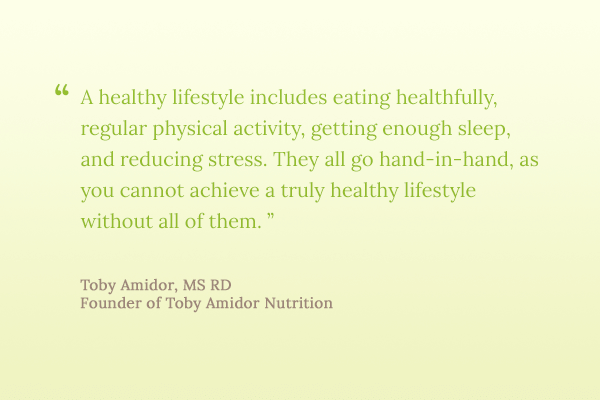
Rosie: What excites you most about nutrition, and how would you describe your philosophy as a dietician?
Toby: I love providing people with insight on the latest food, nutrition and diet trends. Oftentimes people believe the hype when it’s only just that—hype.
I also love sharing quick tips on food and cooking that can help people eat healthier or make a simple swap of their favorite dish so they can lighten it up without compromising flavor.
Rosie: How does sleep factor into your practice, and in your experience, how can what we eat influence rest?
Toby: A healthy lifestyle includes eating healthfully, regular physical activity, getting enough sleep, and reducing stress. They all go hand-in-hand, as you cannot achieve a truly healthy lifestyle without all of them.
In my experience, there are certain foods that can influence rest. For example, eating or drinking caffeinated foods can make it difficult to fall asleep. Also, if you overeat or eat foods that cause heartburn (i.e. a large portion of fried food), that can cause heartburn and interrupt your sleep throughout the night.
Also, it’s tough to relax when you’re very hungry. Eat a light snack before going to bed if you haven’t eaten in about 5 hours, though it’s best to avoid eating late before bed if you can help it. Drinking too many liquids before bed can also interrupt sleep if you have to run to the restroom throughout the night.
Rosie: It also appears how well we sleep may influence what we eat, by working on both cravings and willpower. When it comes to eating healthy, do you find that sleep plays an important role in success?
Toby: Absolutely. When someone is trying to eat healthily and does not get enough sleep, their capacity for making sound decisions are compromised. They tend to choose more comfort foods, or whatever foods make them feel better or are easy to get to.
Rosie: If you were planning the ideal menu for restful sleep, which elements would you consider most important?
Toby:
- Have a light snack before bed if you haven’t eaten in at least 5 hours.
- Include calcium-rich food (like yogurt or a warm glass of milk) or carbohydrate-rich foods (like whole-grain crackers or an apple) which promote the effects of tryptophan, an amino acid that helps promote sleep.
- Magnesium-rich foods help with sleep. These include nuts, seeds, beans, bananas, avocado, and whole grains.
- Skip caffeine before bed.
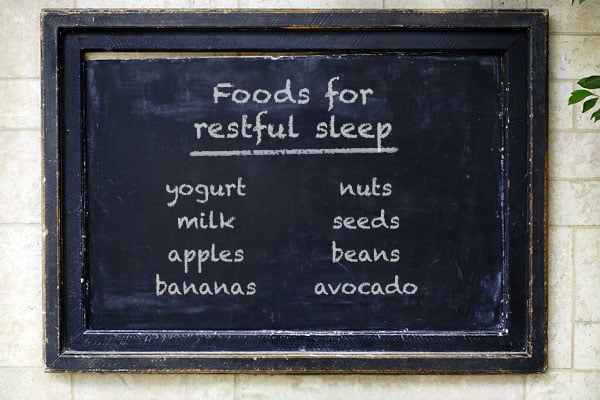
Rosie: Are there foods should people avoid in the evening?
Toby:
- Avoid caffeinated foods like tea, coffee, chocolate, or foods fortified with caffeine. Also, avoid energy drinks that are “uppers”.
- Avoid drinking too many liquids before bed—you can be running to the bathroom all night.
- Avoid greasy, spicy, and very heavy foods before bed which can lead to heartburn.
- Avoid going to bed hungry—have a light snack before bed light yogurt with fruit or whole-grain crackers with peanut butter.
Rosie: Do you find that the timing of meals is important for balancing energy? Does when we eat breakfast or dinner matter?
Toby: Yes. Ideally, you should be eating throughout the day to keep your body fueled. You should have something to eat within 1 hour of waking up as you haven’t eaten typically for at least 8 hours. Also, you should not go over 5 hours without eating. If you find yourself going over 5 hours, then it is time for either a meal or healthy snack to get you through to your next meal.
Rosie: What is your opinion on late night snacks? Are there a few go-to’s you would suggest for people who tend to get hungry before bedtime?
Toby: As long as you have not overeaten throughout the day and gone over on your daily recommended calories (around 2000 calories/day for the average American), then it is okay to have a light snack before bedtime. You also want to avoid going to bed hungry, which can lead to an unrestful sleep.
Optimal snacks include a glass of warm milk, cheese, and whole-grain crackers, or an apple and almond butter.
Rosie: What are your top recommendations for people looking to integrate healthier habits?
Toby: Instead of focusing on the negatives of what NOT to eat, focus on the positive of what you SHOULD eat. Food should be not only healthy but also tasty. When you try to integrate healthier habits, think about the foods you love that are healthy and how you can eat those instead of more junkie foods in your diet.
One food will not cause weight loss or weight gain. It is a combination of what is on your plate at each meal and snack—and the total amount of calories you eat every day. If someone tells you that one food will have magic powers, unfortunately, it does not.
Also, it is okay to fall off the wagon. It happens to the best of us. When that happens, just brush yourself off and get back on the healthy eating wagon again.
From balancing energy intake and integrating sleep-promoting foods, Toby provided several approachable and practical tips. Being mindful of what you eat during the day and in the evening can benefit sleep, and prioritizing sleep can also equip you to make healthier choices. Just as with other tenets of wellness and sleep hygiene, making gradual changes and sticking with them can be key for developing better habits.
If you would like to learn more about Toby or her approach to healthful eating, visit her website or check out her cookbook – “The Greek Yogurt Kitchen: More Than 130 Delicious, Healthy Recipes for Every Meal of the Day”. Toby’s website hosts a blog, and she writes regularly on nutrition and recipes for FoodNetwork.com, Shape.com and elsewhere. You can also find her on Twitter and Facebook.
Do you notice changes in your sleep with different foods or drinks? How can you optimize your habits to promote better rest?
About the author
Rosie Osmun, a Certified Sleep Science Coach, brings a wealth of knowledge and expertise to the health and wellness industry. With a degree in Political Science and Government from Arizona State University College of Liberal Arts and Sciences, Rosie's academic achievements provide a solid foundation for her work in sleep and wellness. With over 13 years of experience in the beauty, health, sleep, and wellness industries, Rosie has developed a comprehensive understanding of the science of sleep and its influence on overall health and wellbeing. Her commitment to enhancing sleep quality is reflected in her practical, evidence-based advice and tips. As a regular contributor to the Amerisleep blog, Rosie specializes in reducing back pain while sleeping, optimizing dinners for better sleep, and improving productivity in the mornings. Her articles showcase her fascination with the science of sleep and her dedication to researching and writing about beds. Rosie's contributions to a variety of publications, including Forbes, Bustle, and Healthline, as well as her regular contributions to the Amerisleep blog, underscore her authority in her field. These platforms, recognizing her expertise, rely on her to provide accurate and pertinent information to their readers. Additionally, Rosie's work has been featured in reputable publications like Byrdie, Lifehacker, Men's Journal, EatingWell, and Medical Daily, further solidifying her expertise in the field.
View all posts